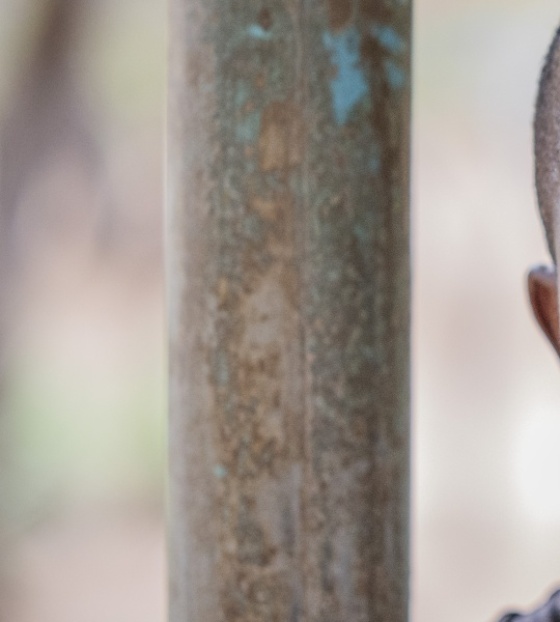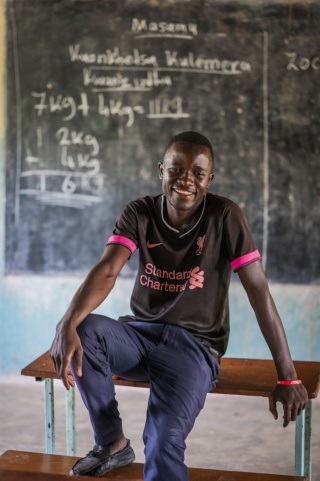
Educating the next generation of children in Zambia
Matthews Sakala and Avito Banda have returned to the primary school in rural Zambia where they first received Mary’s Meals to teach the next generation of pupils.
Matthews Sakala and Avito Banda are teachers at a primary school in in a rural area of Zambia’s Mambwe District, approximately 700km east of Zambia’s capital city, Lusaka. There are no paved roads here, and communities and schools are often cut off during the rainy season.
23-year-old Matthews has already qualified as a teacher, while 26-year-old Avito is still in training. They both attended the school as children, where they received daily school meals as part of Mary’s Meals school feeding programme.
Educating the next generation
Matthews received daily school meals for three years from 2015 to 2017 while he was a pupil at the school. He is one of eight children, and all his siblings have eaten Mary’s Meals. The younger ones still do – at this same school.

He also remembers the time before Mary’s Meals was serving here.
“It was so difficult,” he says. “I would go home after morning sessions because I was too hungry to stay. But then when I got porridge, I could stay for afternoon sessions and that meant I could learn faster.”
“My parents encouraged us to stay in school, and I am very proud of them because they worked so hard. Now I’m able to support them. If more children are able to stay in school, it can change our country.”
Now, having finished his teaching qualification, he has come back to his old primary school to teach the next generation of pupils receiving Mary’s Meals.
Feeding a brighter future
Avito comes from a very poor family, and he also remembers the time before he had Mary’s Meals at school.
“With hunger, you can’t concentrate,” he says. “You can’t do anything.”
He is now married and has two young children.
“I want them to get educated, as I have been, and to have a bright future,” he continues. “Because of my job, we don’t worry about feeding them. That is the difference that an education can make.”